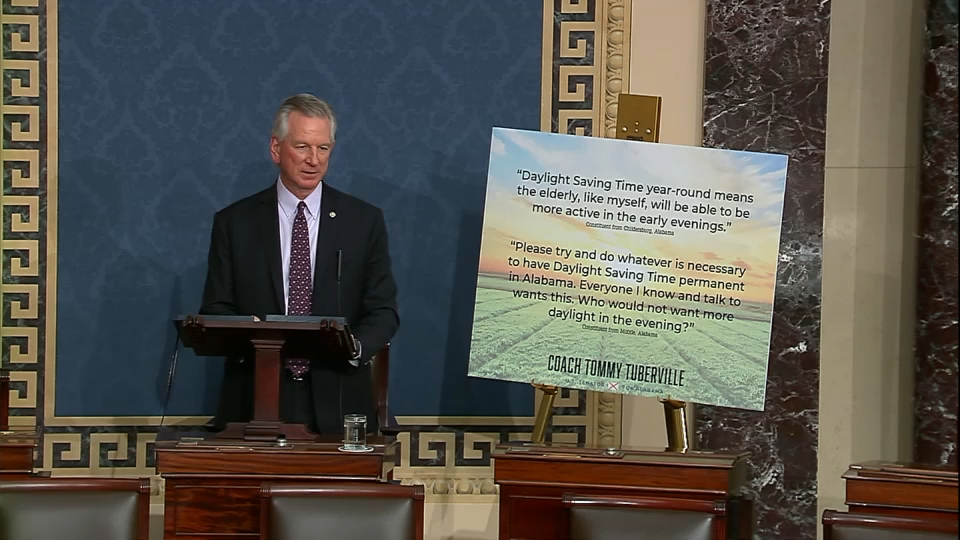‘Let’s give Americans something to celebrate: longer days and more sunshine.‘
WASHINGTON – Ahead of Daylight Saving Time (DST) this weekend, U.S. Senator Tommy Tuberville (R-AL) took to the U.S. Senate floor to call on his colleagues to pass the Sunshine Protection Act to make DST permanent. In a floor speech, the Senator highlighted letters from Alabamians expressing support for ending the outdated practice of having to adjust clocks twice a year.
Excerpts from the Senator’s speech can be found below, and his remarks can be viewed here.

“A constituent from Talladega County writes, ‘Daylight Saving Time year-round means the elderly, like myself, will be able to be more active in the early evenings.’ Another from Mobile writes ‘Please try and do whatever is necessary to have Daylight Saving Time permanent in Alabama. Everyone I know and talk to wants this. Who would not want more daylight in the evening?‘ And this is from a mental health professional: ‘I am writing to let you know of the negative effects on my population of having the time change the way it does in November towards an earlier sundown. It increases depression and decreases productivity in about half of my psychiatric patients…’ These messages make important points, and I couldn’t agree more.“
“Daylight Saving Time should be a thing of the past – because it literally is. Introduced as a temporary measure during World War I, Daylight Saving Time was originally called ‘war time,’ and it was a way to help conserve fuel and better utilize resources.“
“Kids get out of school and the sun is starting to set, families in their kitchens cooking dinner feels more like a bedtime dinner. Weekends have less sunlight hours, limiting the amount of time folks of all ages can spend enjoying the outdoors. Additionally, reduced levels of sunlight are known to disrupt the body’s internal clock which regulates sleep and alertness. It is no wonder that cases of SAD or Seasonal Affective Disorder are much more common in the winter months than they are in the spring. And for our farmers, longer days mean more time to work in the field under sunlight which translates to a more profitable bottom line. From an economic perspective, the time change costs the United States economy an estimated $430 million dollars annually when accounting for lost productivity….“
“The Sunshine Protection Act makes sense from a health and economic perspective. And it is just commonsense. It is time we pass the Sunshine Protection Act.”
Senator Tommy Tuberville represents Alabama in the United States Senate and is a member of the Senate Armed Services, Agriculture, Veterans’’Affairs, and HELP Committees.
###